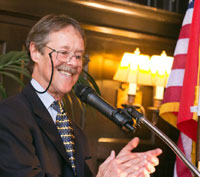
Human Rights Trumped
By Mel Gurtov
Who cares about human rights? Not Trump, not his team. Here’s some of what we see.
Deceptive Reporting
Discussion in the Trump administration of sensitive human-rights cases often gets relegated to the annual state department report on conditions around the world, a report required by Congress. Even here the Trump administration has downplayed human rights. When the 2016 report was prepared, former Secretary of State Rex Tillerson rejected the usual practice of presenting it to the press, evidently to discount its importance. The 2017 report, which came out this April, “sugarcoated” several controversial issues, as one human rights NGO leader put it.
These deceptions include Israel’s conduct in the Occupied Territories (no longer labeled as such), high civilian casualties from Saudi Arabia’s indiscriminate bombing in Yemen (referred to as “disproportionate collateral damage”), and women’s reproductive rights (no longer mentioned). Little wonder that so many senior diplomats have quit over Trump’s disdain for human rights, including John Feeley as US ambassador to Panama, Elizabeth Shackelford as chief political officer in the US embassy in Somalia, and Jim Melville as ambassador to Estonia.
A Declining Example
The United States has always professed to be an exemplar of respect for human rights—for liberty, democracy, and the rule of law—and has deplored (and occasionally sanctioned) outrageous human conditions in some other countries. That stance was the foundation of Roosevelt’s argument for US entry into World War II—and as well of Eleanor Roosevelt’s role in crafting the UN Universal Declaration.
Every postwar US administration since has had a very inconsistent record in that regard, but Trump’s is the worst of the lot by half: He rarely even makes reference to human rights, much less takes action on its behalf. But then again, any action he might take would lack credibility, because as FDR observed, improving human rights at home is central to protecting it abroad.
Trump does not make that connection. He is riveted on two things, money and power, the core concerns of a big businessman who never has enough. The lure of money hardly needs explanation. First come the receipts: Trump and his family see gold in foreign officials’ visits to his US and overseas properties, in potential hotel and golf sites for his brand, and in (secret) transfers of funds from the Russians and others to support his election and help pay his debts. Then there are the costs: Trump has declared that certain military exercises, alliances (read: NATO, Japan, South Korea), and overseas bases are too expensive. Human rights concerns do not figure in such a bottom-line calculus.
Trump’s aim to expand his personal power may be seen in his affection for certain autocrats. Democracy, the rule of law, and transparency are among his least interests. Trump looks for inspiration to dictators because they display the kind of raw, unchallenged political power he would like to have—the power, that is, to defy behavioral and policy norms, behave brutally with those who are disloyal or disagree, and go it alone without consequences. Granted, talking with dictators is sometimes necessary and useful, with the Singapore summit with Kim Jong-un a prime example. But admiring them is another matter entirely: It betrays a disturbing personal characteristic of Trump’s.
We see the dictator’s playbook at work in Trump’s stance on immigration–a direct appeal to popular fears and long-denied racist impulses. Paul Krugman contends that Trump must stir up unreasoning hatred of “the other.” Krugman writes: “the atrocities our nation is now committing at the border don’t represent an overreaction or poorly implemented response to some actual problem that needs solving. There is no immigration crisis; there is no crisis of immigrant crime. No, the real crisis is an upsurge in hatred — unreasoning hatred that bears no relationship to anything the victims have done. And anyone making excuses for that hatred — who tries, for example, to turn it into a ‘both sides’ story — is, in effect, an apologist for crimes against humanity.”
And now the US Supreme Court, far from helping stem this tide, has endorsed a president’s power to claim a national security threat that will keep Muslims out of America. The founders of this country, who looked for it to be a “shining example” to the world, must be turning over in their graves. So, surely, is FDR.
